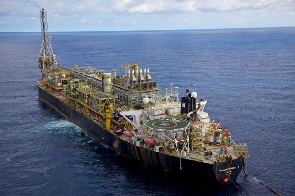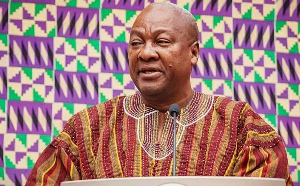With the country expecting its fourth consecutive decline in oil production since 2010 – as a result of reduced production in all three existing oil fields, industry experts are raising concerns about the impact on Ghana National Petroleum Corporation’s (GNPC) financial stability.
They warned that a dent in the national oil company’s financial health could constraint development of the Voltaian basin in particular.
Finance minister Ken Ofori-Atta reported during the 2024 budget presentation to parliament that in the first three quarters of 2023 crude oil production decreased by 9.54 percent to 35.42 million barrels – down from 39.15 million barrels in the same period of 2022.
The Greater Jubilee field contributed 21.94 million barrels, the TEN field produced 5.02 million barrels and the Sankofa-Gye Nyame field yielded 8.46 million barrels.
This decline in production has impacted the country’s oil & gas sector earnings from January to September 2023. This affected total funds going to the Petroleum Holding Fund (PHF), which serves as the main account for all revenues generated from crude oil lifting – from where disbursements are subsequently made.
The decline in petroleum revenue raises significant concerns regarding the national oil company’s financial well-being and its capacity to invest in the struggling sector’s development.
The Executive Director-Institute of Energy Security (IES), Nana Amoasi VII, cautioned that revenue shortfalls could necessitate the revision of expenditure on key infrastructure and projects downward – and also threaten GNPC’s long-term survival.
“The uncertainty regarding cash flows might cause the entity [GNPC] to reduce investment in key activities necessary to position it as a standalone operator, and also limit job creation,” Amoasi told the B&FT.
Revenue from crude oil reached US$509.68million, contributing to a total of US$751.32million when considering other petroleum receipts. This marks a significant decrease from the US$1,168.99million received in 2022, as reported by Ofori-Atta.
From the total distribution of US$750.69million, the national oil company – GNPC – received US$184.45million. This allocation includes an equity financing cost of US$117.63million and GNPC’s share of the net Carried and Participating Interest (CAPI), amounting to US$66.82million.
“For the Voltaian basin in particular, a dent in GNPC’s financial health might be a major constraint to its development,” the energy expert and traditional leader said.
Total petroleum receipts are influenced by both the volume of oil production and average unit price per barrel achieved. Unfortunately, Ghana faced challenges in both aspects from January to September 2023, prompting concern from industry experts.
Restoring confidence
Amoasi advocated an urgent “uptick in upstream activities and investment” with the right policies and regulations. This, coupled with the hope that international oil prices will be favourable in the long-term, he said, will help reverse this worrying trend and restore confidence in the sector.
“Sound and favourable policies are key to attracting investment into the broader petroleum space. Policies and actions that assure equal access to opportunities, improve predictability and provide certainty are necessary to give cause for the investment community to respond positively. It is such market attractiveness that will restore confidence in the sector,” he said.
Additionally, Amoasi called for comprehensive consultation with sector players and the uptake of alternative views in the framing of policies and regulations: “This will prompt some level of certainty and settlement to sector policies. If there are any constraints imposed on the sector, government must consider removing same to spur investment and growth in the dwindling sector”.
Time for deliberate investment
David Ampofo, Chief Executive Officer-Ghana Upstream Petroleum Chamber, attributed the decline primarily to a shortage of investment.
“Right now, the fields we are producing from – the Jubilee partners -are the same people who discovered oil in 2010. The key is to consistently replace reserves. This is crucial for sustaining production,” he said.
Development Economist and Resource Policy Analyst, Abdul Karim Mohammed, on his part said: “This is the time for us to speed up production of our fossil resources and cash-in”.
He said more needs to be done in opening up the sector for more investors – advocating transparent and competitive bidding processes.
This, he explains, will allow capable institutions with the requisite financial muscle and technical knowhow to explore the resources. “We need to open up. We need to invite more investors.”
Business News of Wednesday, 10 January 2024
Source: thebftonline.com













